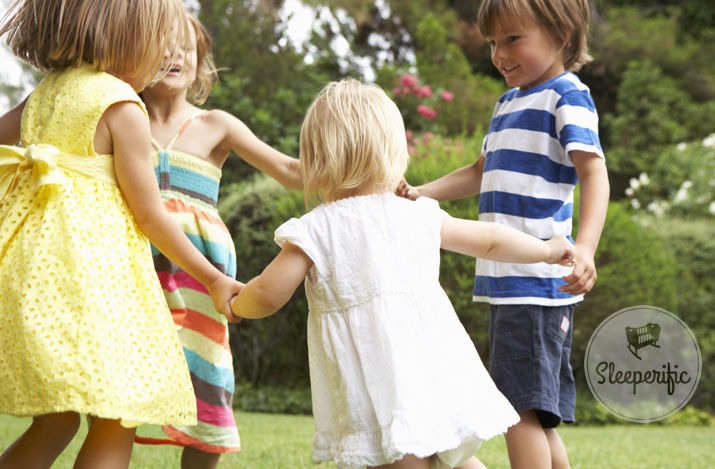Getting regular, restful sleep is absolutely crucial for mental health, but according to the 2003 National Survey of Children’s Health, 15 million children and teens aren’t getting enough. Learn more about how important sleep is for your children, and how you can help them get more of it.

Sleep and Mental Health
North American adults, teens, and children are all at risk of sleep deprivation, and it’s a big problem, because sleep deprivation is a risk factor for mental illnesses like depression and anxiety. As well as this, people with existing mental illnesses tend to suffer from sleep problems. This means there’s what’s known as a “bidirectional link” between sleep and mental illness: people who have sleep problems are more at risk of developing certain mental illnesses, and people with mental illnesses are likely to have insomnia and other sleep disturbances.
According to studies that examine brain chemistry and brain activity, getting a good night’s sleep on a regular basis is important for mental acuity and emotional stability. For example people who don’t get enough sleep are more likely to be emotionally volatile, and to have reduced cognitive function that can negatively affect their work or school performance. If the problem isn’t addressed, sleep deprivation can easily turn into a vicious cycle where lack of sleep causes minor emotional or cognitive problems that exacerbate sleeping difficulties.
What Does this Mean for Your Child?
While the link between sleep and mental health has been well established in adults, it was only recently, in May 2015, that scientists confirmed the existence of a similar link in children. The study, carried out at the Norway University of Science and Technology, found that when young children have serious sleep problems, they have a higher risk of developing psychiatric problems during childhood.
The study looked at the sleeping routines of children as young as four, and concluded that four year old children with serious sleeping problems had a higher risk of developing psychiatric issues by as early as six years old. The most common sleep disorder children are affected by is insomnia; in the Norwegian survey, around 16.6% of four year olds were affected.
The study also found that the reverse was true: young children with psychiatric symptoms had a higher likelihood of developing sleep disorders than children who didn’t have psychiatric symptoms. This is especially true of ADHD, which causes sleep problems in up to 50% of children with the disorder.
What to Do if Your Child has Sleeping Problems
This doesn’t mean, of course, that all children with sleep problems will develop psychiatric symptoms or mental illnesses. For most children, as well as most adults, sleeping problems are transient, lasting only a few weeks or a few months. For children especially, establishing healthy regular sleep routines is difficult, even for children who don’t have actual sleep disorders. However, there’s a lot you can do to help your child establish a healthy sleep routine, and teach them about the importance of sleep.
- Establish a set bedtime and try not to deviate from it.
- Make sure their bed is comfortable and isn’t too hot or too cold.
- Avoid distractions in the hour before bed, for example, with a “no TV/computer” rule. Instead, opt for bedtime stories or soothing music.
- Kids sleep better when they spend time playing outdoors, so encourage your children to take part in sports or other outdoor activities.
Transient sleep issues are absolutely normal, and there’s typically no reason to be worried if your child has difficulty with a new bedtime or a change in sleeping habits. But if their problems persist for more than a few months, or get worse over time, then seeking help is definitely a good idea.
Citations
Centers for Disease Control and Prevention. Children’s Mental Health. Accessed June 9, 2015.
Child Development Institute. Child Psychology and Mental Health. Accessed June 9, 2015.
DA – Helping Children With Addiction. Helping an Addicted Child. Accessed June 9, 2015.
Eureka Alert Press Release. Children’s Sleep and Mental Health are Related. Silje Steinsbekk and Lars Wichstrøm (2015). Stability of Sleep Disorders From Preschool to First grade and Their Bidirectional Relationship With Psychiatric Symptoms. Journal of Developmental & Behavioral Pediatrics: May 2015. Volume 36, Issue 4. pp 243-251.Accessed June 9, 2015.
Harvard Health Publications Newsletter (2009). Sleep and Mental Health. Accessed June 9, 2015.
Healthy Children. Sleep and Mental Health. Accessed June 9, 2015.
About the Author: Mel Rivers now works as an independent freelancer, before she did this she had a varied career in the health care sector. Prior to working in this sphere, she’d battled her own issues with addiction, and used her experiences to help deal with other people who were struggling, during the course of her day job. She works from home now, after becoming a mom to two girls.

 Ah summer. We Canadians wait ALL year for this kind of weather (certainly when comparing it to
Ah summer. We Canadians wait ALL year for this kind of weather (certainly when comparing it to 